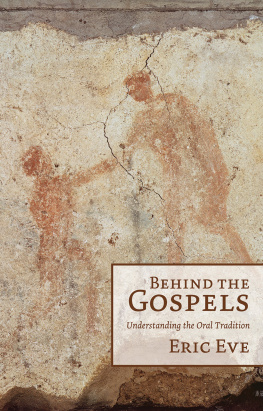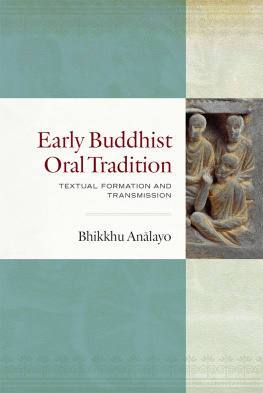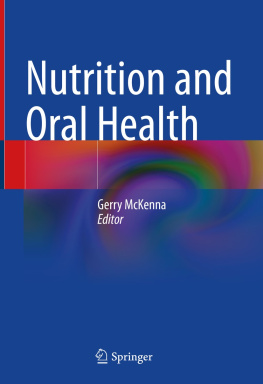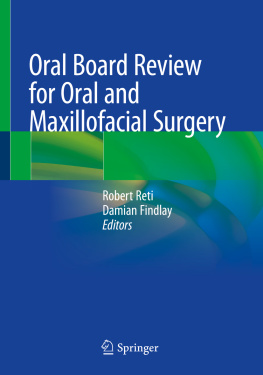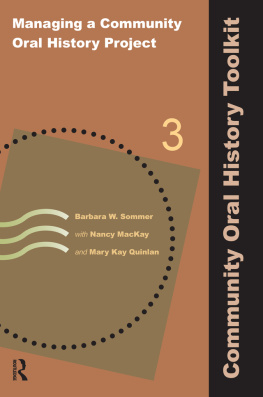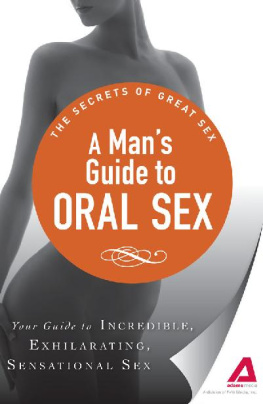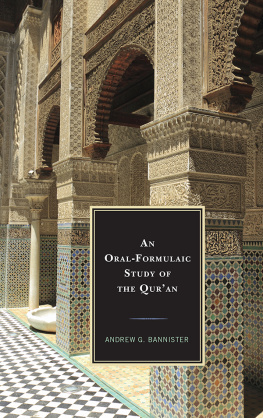ROUTLEDGE LIBRARY EDITIONS:
AFGHANISTAN
Volume 2
ORAL NARRATIVE IN AFGHANISTAN
ORAL NARRATIVE IN AFGHANISTAN
The Individual in Tradition
MARGARET A. MILLS
First published in 1990 by Garland Publishing
This edition first published in 2020
by Routledge
2 Park Square, Milton Park, Abingdon, Oxon OX14 4RN
and by Routledge
52 Vanderbilt Avenue, New York, NY 10017
Routledge is an imprint of the Taylor & Francis Group, an informa business
1990 by Margaret Ann Mills
All rights reserved. No part of this book may be reprinted or reproduced or utilised in any fonn or by any electronic, mechanical, or other means, now known or hereafter invented, including photocopying and recording, or in any infonnation storage or retrieval system, without permission in writing from the publishers.
Trademark notice: Product or corporate names may be trademarks or registered trademarks, and are used only for identification and explanation without intent to infringe.
British Library Cataloguing in Publication Data
A catalogue record for this book is available from the British Library
ISBN: 978-0-367-14305-3 (Set)
ISBN: 978-0-429-29389-4 (Set) (ebk)
ISBN: 978-0-367-26513-7 (Volume 2) (hbk)
ISBN: 978-0-429-29386-3 (Volume 2) (ebk)
Publishers Note
The publisher has gone to great lengths to ensure the quality of this reprint but points out that some imperfections in the original copies may be apparent.
Disclaimer
The publisher has made every effort to trace copyright holders and would welcome correspondence from those they have been unable to trace.
Oral Narrative in Afghanistan
The Individual in Tradition
Margaret A. Mills
GARLAND PUBLISHING
NEW YORK & LONDON
1990
1990 by Margaret Ann Mills
Library of Congress Cataloging-in-Publication Data
Mills, Margaret Ann.
Oral narrative in Afghanistan: the individual in tradition / Margaret A. Mills.
p. cm. (Harvard dissertations in folklore and oral tradition) Includes bibliographical references.
ISBN 0-8240-2871-6
1. TalesAfghanistanHistory and criticism. 2. Oral traditionAfghanistanHistory and criticism. 3. FolkloreAfghanistanPerformance. I. Title. II. Series.
GR302.5.M551990
398.2O9581dc2090-2960
All volumes printed on acid-free, 250-year-life paper.
Manufactured in the United States of America.
Design by Julie Threlkeld
Preface to the Garland Edition
G arland Publishing undertakes a community service in publishing dissertations which, to some extent, would now count as period pieces. That is certainly the case for this work, at least from the viewpoint of theory and method. Nonetheless, data on Afghan oral traditions being sadly sparse, I hope it will be of some interest to readers, who are asked for their indulgence regarding the now out-of-date aspects of the study. We do not know what the oral performance world of post-war Afghanistan will be like. Surely priorities and rhetorics have been radically influenced by ten years of war, and the wars end is not, in late 1989, yet in sight. It may be apparent in the coming years that the world of oral fiction entertainments in Afghanistan has been as radically changed as has the world of narrative theory and ethnographic representation, in the last decade.
The woman who is the main focus of this study guarded her privacy carefully in the years that I knew her, though she was quite happy to help with my research and especially to share her verbal artistry with me. She preferred that her name not be used in this study, nor her picture published, and I have complied with that preference. I have begun a book project to publish and analyze her story repertoire in more complete form, together with a fuller presentation and analysis of her biography and personal experience narratives in connection with her fictional narrative and poetic activities. That study should see print in four or five years time.
Margaret A. Mills
University of Pennsylvania
November 1989
To my mother and father, for unfailing truth.
The voice is half the wisdom.
-apocryphal hadith
For the monetary support which made this project possible, I wish to thank the American Association of University Womens Education Foundation, Harvard Universitys Sheldon Fund, the Department of Health, Education and Welfares Fulbright-Hays Dissertation Grants Program, and the National Science Foundation.
Many people have taught me, and to them I owe thanks, whatever misuse I have made of their ideas. To enumerate a few would slight the rest. I mention only three, whose gift of patient friendship has meant even more than their ideas and information: Aminollah Azhar, Madar Zaher, and first and last, Annemarie Schimmel.
TABLE OF CONTENTS
FIGURES AND DIAGRAMS
Since the turn of the century, folklorists work on oral prose narrative has proceeded along two major lines, deriving respectively from historical philology and structural linguistics. The European scene was dominated, for the first half of the century, by the historical-geographical or Finnish school, which studied folktale texts as chains of detachable and to some extent interchangeable parts, designated motifs.1 The second line of inquiry, growing out of structural linguistics, attracted the interest of a variety of anthropologists and linguists. Structuralism is perhaps a misnomer for some of the branches which this line of inquiry has yielded,2 but all the structuralist and formalist theories have in common their treatment of narrative texts as wholes, and their search for meanings in the interrelationships of elements within a text.3
Each of these analytic approaches, in its way, confronts the , discussed below, is a variant), often with an eye to postulating an historical/geographical origin point for a given story, on the basis of the fact that differences between variants tend to be greater as time, distance and linguistic and cultural barriers intervene between them. Differences are generally mapped in terms of details of content, particularly in the choice of motifs (e.g. the tasks set for the hero(ine), which can range from the retrieval of various objects to the answering of certain questions, etc.), or, as in the Cinderella tale cycle, whether the main character is a male, a female, or twins, and whether the magical helper is a cow or other animal, or an anthropomorphic supernatural, etc.
The canonical reference works of the Finnish school are Aarne & Thompson, The Types of the Folktale (2nd recision, 1961), and Thompsons Motif Index of Folk-literature (Helsinki and Bloomington, IA, 1932-1936).
Particularly in the last two decades, Russian formalist ideas have entered the thinking of many European structuralists, but the relationship of these two schools of thought exceeds the scope of the present discussion.
Two case studies which illustrate the method of the most prolific of the structuralists, Claude Levi-Strauss, are La Geste dAsdiwal, Ecole Pratique des Hautes Etudes , Section des Sciences religieuses, Annual (1958-59), Paris, 1959, and The Structural Study of Myth, Journal of American Folklore 68 (1955).


